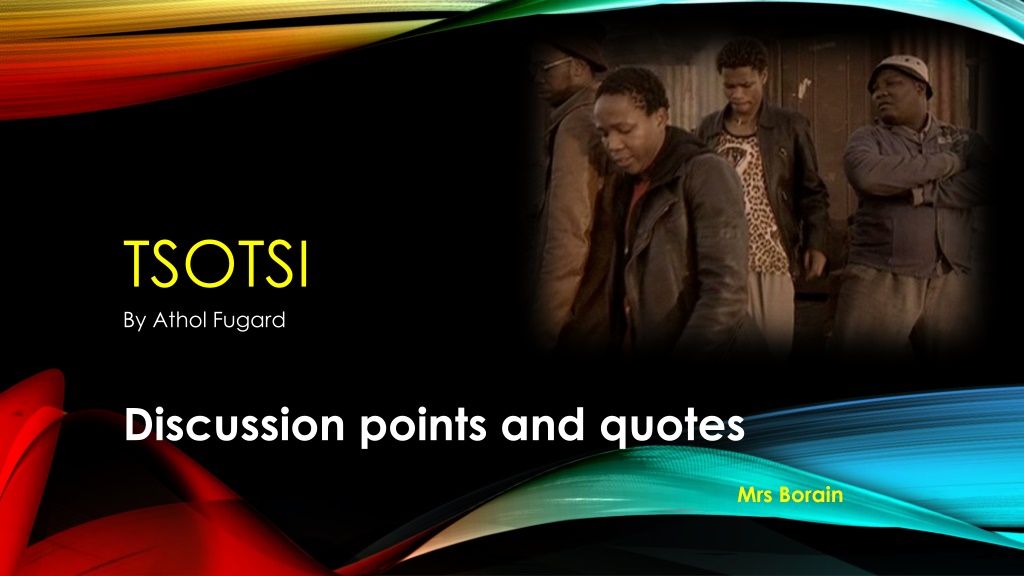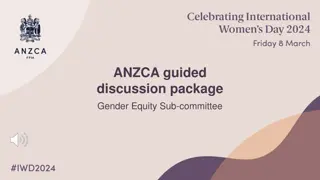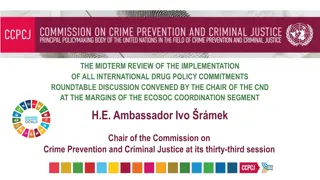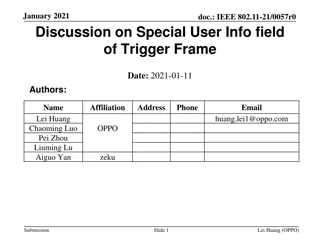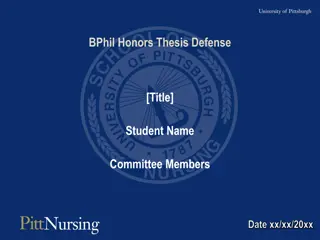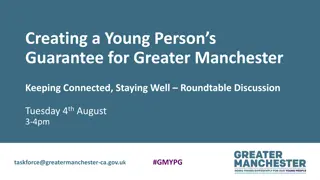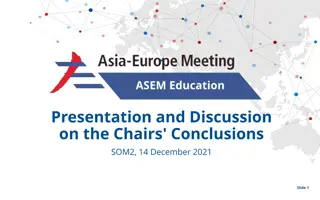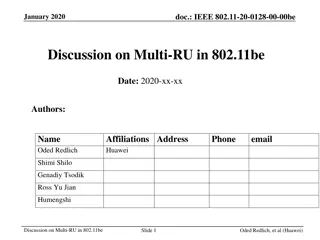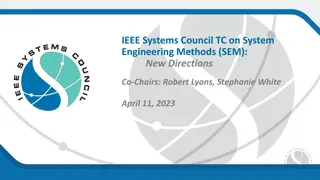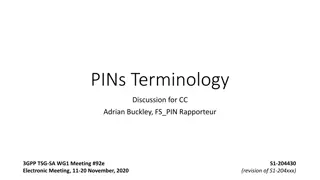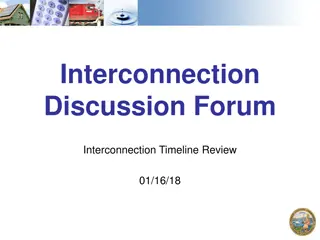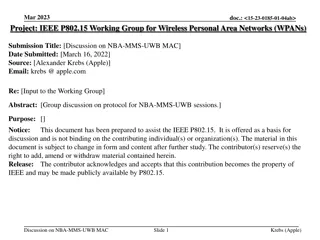Discussion on Tsotsi by Athol Fugard
Tsotsi by Athol Fugard explores the lives of young black men in Johannesburg's townships, delving into the impact of restricted movement during apartheid and the characteristics of a tsotsi. The setting, the gang dynamics, and the extreme nature of tsotsis are key themes discussed in the book, shedding light on the harsh realities faced by individuals living in these environments.
Download Presentation

Please find below an Image/Link to download the presentation.
The content on the website is provided AS IS for your information and personal use only. It may not be sold, licensed, or shared on other websites without obtaining consent from the author.If you encounter any issues during the download, it is possible that the publisher has removed the file from their server.
You are allowed to download the files provided on this website for personal or commercial use, subject to the condition that they are used lawfully. All files are the property of their respective owners.
The content on the website is provided AS IS for your information and personal use only. It may not be sold, licensed, or shared on other websites without obtaining consent from the author.
E N D
Presentation Transcript
TSOTSI By Athol Fugard Discussion points and quotes Mrs Borain
THE SETTING Young black men in Johannesburg s townships, entranced by 1940s American gangster films, adopted their dress-sense along with their contempt for law and order. Life was cheap; the gun and the knife ruled at night , recalled Nelson Mandela in his autobiography Long Walk to Freedom. [Fugard s] childhood was spent in the company of the black workers in the tearoom run by his family in the town of Port Elizabeth. With workers unable to have their families live with them, the resulting social pressures brought prostitution, illegal drinking dives shebeens and crime.
RESTRICTED MOVEMENT DURING APARTHEID The introduction written by J Kaplan gives us important insights into the setting: Aimed at halting black urbanisation, these restricted freedom of movement by permitting blacks to be in the townships only as long as they ministered to white needs. A pass was required to get work. Those caught without one faced prison and deportation back to the jobless black rural homelands . Avenues of legitimate employment became scarce for township youth. Forced into an underground existence, criminality offered a chance for survival; only the most ruthless might thrive.
CHARACTERISTICS OF A TSOTSI? By the late 1950s, when Fugard wrote this book, tsotsis had become the scourge of people s already straitened lives in the townships. They preyed on their fellow Africans, robbing, murdering and raping with impunity, for the authorities did little to keep order in the townships. Tsotsis were its predators, killers with a superlative attention to mortal detail. In my years as a medical student I saw their victims delivered to us with the neatest of wounds. We learned to inspect the collapsed patient for the almost invisible puncture in the armpit from a sharpened bicycle spoke, slipped between the ribs into the heart to cause a tamponade: a squirt of blood into the pericardial sac that as it filled, pressed on the heart, strangling it in its own labour.
If Fugards portrayal of Tsotsi seems extreme, consider what the medical student recounts about the vindictive nature of the Tsotsis: Sometimes, instead of murder, a lancet blade or knife- edged spoke would be stuck into the spine at the exact level to achieve a specific outcome paraplegia, quadriplegia, with or without the ability to achieve an erection. In these cases the blade was sterilised before use so that vengeance would not be thwarted by an early death from infection.
THE GANG Tsotsi s gang, his apostles, are a drunkard, a psychopath and a thug, according to Kaplan in the introduction. Apostle is an interesting word choice. It is reminiscent of Christ s followers, but instead of Christ leading the gang, we have a tsotsi who is anything but Christ-like. However, his redemption in the end might suggest that redemption is possible for anyone. Thoughts? Juxtaposing apostles with drunkard , psychopath and thug is a stark contrast. Because of a lack of options, can we reconcile sin when one is in need? Or lost? Is there space for forgiveness in certain circumstances?
MOTIVATION FOR CRIMINALITY Regarding his work, Kaplan refers to it as the casual termination of human life . He repeats to himself, It is the same as always , yet Tsotsi knows nothing of himself, not name, nor age, nor origins. Shorn of history, he has no identity, and when he thinks of himself he thinks of darkness. Having our protagonist shorn of history drives the narrative. It is because of his troubled past that he blocks out all memory of his childhood, and being without a past releases him from his identity. Without knowing who he is, especially forgetting his mother, he becomes completely amoral. Being amoral, he is completely lacking a moral sense, unconcerned with the rightness or wrongness of something . Tsotsi turns out to be a surprisingly prophetic model for his country s redemption what does Kaplan mean when he says this?
CHARACTER DEVELOPMENT - CHAPTER 1 Even though Tsotsi is the youngest, the others all look to him for leadership: The other three looked up at him and waited. Tsotsi told them what they would be doing that night. Character development: Die Aap, so called because of his long arms his knuckles seemed to drag in the dust listened attentively to every word. Note: Least evolved. Butcher, built like Tsotsi with lithe supple bones, but different in his small, dangerous eyes and his pendulous lower lip, Butcher also listened, but with impatience. Note: Sinister. Impatient for what?
Bostons stories were of no consequence. Note: He is full of hot air. Butcher twisted in another spasm of impatience and hate Note: He cannot wait to release his hate. The smile that hid fear [Boston], the eyes that hid hate [Butcher], the face that hid nothing [Aap]. Note: Is it more interesting that they each feel this way, or that Tsotsi recognises their hidden feelings?
the township wore that hour the way a beggar wears his rags, the cast-offs of a better time, accepted but without gratitude, worn without pride. Note: The township is compared to a beggar wearing time like rags. The time/rags have been discarded by the privileged and the beggars pick them up. The township is a synecdoche (where the whole township represents each member) because it is in fact the inhabitants who pick up the cast-offs.
busy women found themselves with empty hands old men dozing Note: The women have empty hands (metonymy the phrase empty hands replaces unemployed ) and the men sleep. This is a picture of poverty with few options.
four men passing that moment were harbingers of the night Note: They bring an ominous message. shadows were running like rats after the four pipers. That is why in his passing down the crooked street, men looked the other way and women wept into the dust. Note: They cannot stop him. Most people are decent, an important theme later.
Firstly, he smiled. His second mistake was the tie. But it was a bright tie and made it easy for Tsotsi to follow him at a distance the third mistake. He bought the ticket with money from his pay packet cardinal piece of advice for getting home safe on the Friday night train don t let anyone see your money. Even as that was happening, Tsotsi bent close to the dying man and in his ear whispered an obscene reference to his mother. A moment of hate at the last, he had learnt, disfigured the face in death. Why does this give him pleasure? This is what is explained in the introduction how skilled tsotsis were at killing and getting the desired outcome from their victim. Note: What kind of character are we getting to know? Are we invited to feel any empathy for him?
CHAPTER 2: QUESTIONS AND DECENCY You could drink with the men or you could drink with the girls. You could drink alone if it was that sort of day and that sort of world, you could sit down on a chair in a corner and drag out the one tot to last all night and no one would give a damn one way or another why your mother was dead or your woman gone. You could drink with a picture on the wall or no picture at all. You could drink comfortable in a club easy, or sitting on a wooden bench, you could even drink standing up in a backyard. Note: Escapism from a terrible life, but no one cared as each had their own burden. There is a drunk woman in the shebeen asking for a kiss, and Boston goes up to her and With great deliberation and a flat hand he slapped her in the face . Note: This unnecessary violence by Boston when the woman calls him over for a kiss seems to be an attempt to prove he is not yellow. It does nothing more than debase him further. Is he also trying to discipline her because of her drunken wantonness? There is something pathetic about Boston, but his conscience does play an important role later.
he drank two drinks to their four, he watched them, he heard them sometimes and sometimes closed his mind and thought about nothing, Note: Tsotsi is keeping his wits about him. And then he starts to lose his temper: It was because of his questions. Die Aap told Boston how much Tsotsi hated questions about himself Because when Tsotsi did this, and Boston saw it, and made Tsotsi realize that he saw it, then Boston ventured tentatively from silence to the spoken word. That was the stage their play had reached Note: Tsotsi cannot stand questions about himself because he does not know the answers. It is further evidence of his shorn past.
My birthday, she said. I want to know my birthday. Note: Soekie s predicament is similar to Tsotsi s. Who cares so little that they don't celebrate her birthday? She is nobody, and wanting to know this shows that she longs for identity and recognition too. Boston hissed out the word decency! Note: He is vehement. His anger and moralising is dangerous. [Regarding Boston s teeth and tongue:] That makes his words, Tsotsi thought, and a second later, he wants to hurt me. Books and words! I wipe my backside with books and words. How old are you? Note: Like Soekie, no one cares about him enough to celebrate this with him. Tsotsi hated the questions for a profound but simple reason. He didn t know the answers neither his name, nor his age, nor any of the other answers that men assemble and shape into the semblance of a life.
His own eyes in front of a mirror had not been able to put together the eyes, and the nose, and the mouth and the chin, and make a man with a meaning. Note: Tsotsi doesn t even recognise himself as a person, or an individual. It s not the same. What s the difference? She ll live. Note: Butcher and Aap have taken the drunk woman outside after smoking dagga to assault her. Tsotsi says that what they are doing is not as bad as Gumboot s death because she will live. But she will not be the same. When we dropped that big one tonight it was like that inside me. I bled man. I m telling you I bled. It wasn t just a name, or his age, or where he came from; now it was inside, right inside Tsotsi that he was carrying the light of his eyes, and that was a world in which no one, not even Tsotsi himself, had ventured. Note: Boston was getting somewhere, but this is dangerous ground.
What about a dog? Note: This question triggers Tsotsi s memory. until the street cried, Note: This is a transferred epithet. The street is not crying, the woman is. Every living human being has got a soul! as Tsotsi went to work on him with his shoes using everything he had learnt about pain. Note: Euphemism. Shoes seem to be a recurring motif. They symbolize the path a character chooses , and for Tsotsi it is violence. For Gumboot it was honest labour and cheerfulness unrewarded.
CHAPTER 3: THREE RULES TO LIVE BY He was not released from the torment of his hate. Note: He wanted to finish Boston, so the beating did not satisfy his torment. It will happen will happen will happen one day it will happen God help you that day, one day, that day, one day. Note: What Boston said is tormenting him. This foreshadows his redemption. He sat down immediately the image of Boston rose up before him. Note: Guilt or remembrance of his childhood? When he thought of himself inwardly, Tsotsi thought of darkness. Inwardly there was darkness, something like the midnight hour, only more obscure. Note: This self-loathing is enigmatic. The reader is invited to consider why he is so dark.
The first rule was the rule of working in the moment. That moment always came as a miracle a sudden eruption of light as he opened his eyes, and sound as well as sensation, feeling and smelling; being born twenty years old with the smell of the womb in your nostrils and its darkness behind your back. before anything else, eating, washing, pissing, he had to see to his knife The knife was not only his weapon, but also a fetish, a talisman that conjured away bad spirits and established him securely in his life. Note: He has lived under constant threat and his knife represents safety and fortune. He says he was born twenty years old with the smell of the womb in his nostrils, suggesting that the years before that have been wiped out. The word smell is evocative too, and one immediately imagines the malodourous township where he was metaphorically born . This birth also brings to mind the rebirth redemption offers, which also comes later. second rule which operated from then on through every other moment of the day was never to disturb his inward darkness with the light of a thought about himself or the attempt at a memory. David! the man called. David! Tsotsi looked away. It s me. Petah. David help me. David, he called, all the way down the street. Knowing it was a voice from his past, he made himself forget. third and final rule was really an extension of the second. It was the rule Boston had broken. [NO QUESTIONS.]
Those questions sounded the vast depths of his darkness, making it a tangible reality. To know nothing about yourself is to be constantly in danger of nothingness, those voids of non-being over which a man walks the tightrope of his life. Even more than that, he knew with all the certainty of his being that behind the fa ade of life lurked nothing. Under men s prayers he had heard the deep silence of it; behind man s beauty he had seen it faceless and waiting; inside man himself, beyond the lights of his loves and his hopes, there too was nothing, a darkness like an enormous unending night that closed in when the fires burned low and out, leaving only ash as an epitaph to their passing warmth. The problem of his life was to maintain himself, to affirm his existence in the face of this nullity. He achieved this through pain and fear, and through death. He knew no other way.
PERIPETEIA: REVERSAL OF FORTUNE With a sudden movement she thrust it into his hands, and he held it clumsily. with a low sob ran back the way she had come, deep into the white night. Note: This is the where the transformation of Tsotsi begins. The baby is thrust into his hands, by a woman so desperate, that she places the baby into her would- be attacker s hands, and turns and runs. Tsotsi had found himself looking at a face that was small and black and older than anything he had ever seen in his life: it was lined and wrinkled with an age beyond years. The sound that had stopped him, and saved the woman, was the cry of a baby. Note: The description of Tsotsi feeling the woman s breasts suggests he might have been about to rape her, but the child s cry gets through to him. Nothing else has managed to do this, not even Boston s remonstrations, or the cry of the raped woman outside the shebeen, not Petah, not death, nothing. Just this baby. Why?
CHAPTER 4: THE BABY When Tsotsi buys the milk we learn that he cannot read: The young man was still hesitant, and made the mistake of picking up the tin and scrutinizing the label. He couldn t read and Cassim realized this. Very good baby milk. Note: What is interesting is that Tsotsi actually pays for the condensed milk. He is so thrown by his new responsibilities that he cannot slide easily back into his usual persona. It also shows that he cares whether the baby lives or dies, which is also progress. His tenderness with the baby as he tries to care for him gives the reader hope. When the baby cries, he thinks of Boston, but he knows he has burnt that bridge. He then decides to hide the baby in the ruins in MaRhabatse s old place because it offered some shelter: an overhang of corrugated iron .
KEY QUOTES Tsotsi knew one thing very definitely now he had started doing things that did not fit into the pattern of his life. The pattern as too simple, too clear, woven as it had been by his own hands, using his knife like a shuttle to carry the red thread of death and interlace it with others stained in equally sombre hues. The baby did not belong and certainly none of the actions that had been forced on him as a result of its presence, like buying baby milk, or feeding it or cleaning it or hiding it with more cunning and secrecy than other people hid what they had from him. It had broken into his life with shattering improbability. He was chancing his hand at a game he had never dared play and the baby was the dice, so to speak.
The memory was of a dog, a bitch, a yellow bitch, and he knew definitely that it came crawling towards him, he thought possibly in great pain, but certainly crawling. He had remembered. It was a strange memory. It was also ancient going back further than he had even thought time itself went. The baby had brought it. The two were tied up together, somehow, the baby and the dog. Note: Both are vulnerable. He identifies with each of them, and wants to protect the baby because he could not protect the dog, or himself. Something urged him to kill the baby and leave it, warning him that he was playing a game he had never dared before. But Tsotsi was obsessed now, a longshot fool who had rolled the dice and had his first win, and then dared the lot because he wanted more. When he left the ruins he had decided to return the next day to feed it again. Note: Tsotsi would be just as likely to leave it there to die, so as banal as this sentence might seem, it speaks volumes.
CHAPTER 5: TSOTSIS VICTIMS Gumboot reappears here because he is being buried as an unknown. The Reverend Henry Ransome is disturbed by his hateful grimace: It was the hate, the hideous distorted hate of its grimace that he remembered now. This one, O Lord. This man fashioned in your image! Note: A loaded statement. We remember how Tsotsi distorted his expression in death, and now the priest is struggling to understand how this hateful face can be made in God's image. God even loves hateful people, seems to be the implication. And then we see how Boston is getting on, Tsotsi s other victim from that fateful night: Where am I going? he asked himself. It doesn t matter, he thought. Nothing matters now. Not a single thing. He had seen his body and felt his face. He had remembered Tsotsi. There s nothing left. It s all finished. But it isn t. Boston still has something to teach Tsotsi.
CHAPTER 6: MORRIS TSHABALALA It wasn t because of the pain. His hands were hard now, his fingers had forgotten their disgust of the gobs of phlegm or dog piss because they no longer felt them. It was the insult of the foot that stung him. It meant he had been seen and nothing provoked so easily to life the harsh and bitter truth about himself. It seemed so little he could easily imagine his legs jumping around some place else and calling themselves Morris Tshabalala. guillotine on his life, severing him from all the purposes, the plans, the places he had known as a full man. He rested like a boatman hunched over his oars. You are walking on stolen legs. All of you. Please God, let a policeman stop him and ask for his pass. They re dogs mad dogs. They bite their own people.
CHAPTER 7: SYMPATHY IS LIGHT Tsotsi let him escape to the safety of the bright lights and big crowds. Allowing that to happen was in its way like the bluegum trees. It led to a lot. Note: Knock on effect - Tsotsi is changing. He is less decisive, and this changes everything. He moved like the bitch of his memory. Note: Tsotsi remembers his dog. His sympathy for Morris is triggered by a repressed memory, and it is also why he is drawn to the vulnerable baby boy. I don t care a damn thing for you. It had never been necessary to say this to himself before he did care He was also right in thinking it had never happened before. He had felt for his victim. Note: Tsotsi is in the throes of an important revelation about himself. What is sympathy? If you had asked Tsotsi this, telling him that it was his new experience, he would have answered: like light, meaning that it revealed.
When he moved up to the glass his image disappeared. He could only see it standing well back, and at that distance and dimness he recognized nothing except the shape of a man. It could be me, he thought, or Boston, or Butcher, or even the beggar if he had legs. There was a comfort in this thought. Note: Aren't we all the same? We are in this together. With each step, each drag nearer their appointed meeting, his sympathy cut deeper until the time came when it felt as if his feet and his heart were pointing in opposite directions and that no one way was forward for all of him. like a full stop in the middle of the night, What do you feel? It was the worst of all, Tsotsi said. Of all the things since we began, the crying was the worst. You are ugly, beggar. You are the ugliest thing I ever did see. It was the truth. I want to live, he said at last. Hadn t they dragged him out of an even darker womb to begin a sequence of days so different it could only be likened to being born again? Note: The mine. If Morris was reborn, is Tsotsi also able to experience a rebirth? Hearing Morris saying he wants to live, despite his circumstances, gives a person hope.
Sunshine, he said. Sunshine in stones. The warm stones of the streets. I felt it tonight at the end of the day. I must feel it tomorrow. If my hands don t feel I ll make a hole in my trousers and sit with my soft bum to feel, or lay my face on the ground. There is also Rain. wind trees growing, colour birds sing. I m telling you all the time I m feeling with you. I don t have to. I let you live. Tsotsi doesn t know how old he is, but instead of getting angry says, But I will find out.
Morris wants to give him something for sparing him: With the instinct of his kind, he turned to beauty and gave back the most beautiful thing he knew. Mothers love their children. I know. I remember. They sing us songs when we are small. I m telling you, tsotsi. Mothers love their children. After this, Tsotsi battles with his thoughts: each time he lost control of his thinking. Like a driverless car down a steep hill, his mind moved with gathering momentum past images and incidents until they were racing past so fast he didn t have time to recognize their meaning. They came without any sensible sequence. A shoebox, Boston drawing a thin line of blood across his arm with the knife, the mummified face of the baby blooming out into a black hole as it cried, then the bitch, then the beggar pissing between his stumps, then an Indian shopkeeper saying Very good baby milk When he came around, he was changed. He felt as if he had woken up to a day of another man s life because of the changes wrought in his life, partially by choice: It was his baby now, by the law of finders-keepers, hidden away in a ruin; it had certainly been his half-memory of the bitch, his full sympathy for the beggar. One day had shaken the whole basis of his life.
CHAPTER 8: MIRIAM He felt the tiny, moist hold with a palpitating heart. He had a name for his experience of that moment. He was feeling for the baby . He remembered the cripple again. They came to it laughing, they came to it silent, or singing or sad, and to all it only gave water. If you try to run away or scream I ll kill your child, he said. Note: He is changing, but not entirely yet. It s not that. Note: Not rape. Miriam means: longed-for child; sea of sorrow; rebellion; she was the sister of Moses.
CHAPTER 9: DAVID until suddenly, from nowhere, came the darkness and the sun was gone, the sky grey, and then hail, big as stones, falling hard and cruel, forcing them lower, and the stones struck his father s head with a short, dull note like hitting something iron, and this note after a slow start was going up into a frenzy of sound because the storm was at its worst, and they were going down down down Note: Foreshadowing the raid. About the raid: It s because we are defenceless. You saw them, how they came and took what they wanted and then went and we did nothing. Anything can get at us, fleas and flies in summer, rain through the roof in winter, and the cold too and things like policemen and death. David waited in the room like he was told, until his father came and crippled his dog who came to him and twisting her body so that the hindquarters fell apart and, lime that, fighting all the time, her ribs heaving, she gave birth to the stillborn litter, and then died beside them . Totsi runs away and joins the ragged pack of mongrel beings sleeping in the pipes. He became Tsotsi after an Indian man chases him away from his shop and calls him a tsotsi.
CHAPTER 10: ANAGNORISIS FROM IGNORANCE TO KNOWLEDGE Where s his front teeth, Tsotsi thought, and then, why the hell am I thinking that. Tsotsi looked at Die Aap. It was strange. He had never realized it before. Every man had a mother. Every single person in the world had a mother. Boston too. (Jesus, what about Boston. He would get around to that.) he s got no front teeth and two years strong the strongest two years he stayed and followed me like a dog follows a man. When Miriam tries to name him, Tsotsi corrects her: His name is David. His redemption is through this child, and so he gives him the name he forgot. When Miriam asks why he is going to keep David: He threw back his head, and she saw the shine of desperation on his forehead as he struggled with that one mighty word. Why, why was he? No more revenge. No more hate. The riddle of the yellow bitch was solved all of this in a few days and in as short a time the hold on his life by the blind, black, minute hands had grown tighter. Why? Because I must find out, he said. And then he goes in search of Boston.
CHAPTER 11: TEACHER BOY Boston is in a terrible state: Throw him out, she said. Throw out the bloody dog. He s pissed again on the floor. He explains how he landed up with Tsotsi: He never wrote the final examinations for the diploma because in June that year he was expelled for trying to rape a fellow student. It s all finished. Everything. Finished as dead as cigarette ash. Tell about the girl then. What is there to tell? You tried your luck with her? Ja. Just like that. Ja. What did I know about what she had in her mind. You see, she just wanted to play, but I tell you I had no luck with the girls. So when she came near me and started rubbing. Hell! Was that a hot night. You see I didn t know when to stop. I didn t know that you went just so far and no further. She started screaming and they came running and found me. She was all in tears. But I mean, what could I do? What could I say? That s how it happened.
When he wasnt thinking, drinking helped to pass the time and keep his hands busy. He took to it naturally, not noticing what was happening until he was deep and well-soaked in the habit. So tell me man. What does it mean? What? What I told you Boston. Boston closed his eyes. We re sick, Tsotsi. All of us, we re sick. From what? From life. he was suddenly seeing something clearly and it might help to say it: You are different. You are changing, Tsotsi, and then later, You mustn t be frightened. It happens, man. A sudden elation lit up Boston s face; he tried to smile, but his lips wouldn t move, and his nose started throbbing, but despite the pain he whispered back at Tsotsi: You are asking me about God. God. Gentle Jesus, meek and mild reminiscent of baby David.
CHAPTER 12: ISAIAH GODS PROPHET Now tell me, aren t you a naughty boy? The white lady s treatment of Isaiah is deliberately satirical. Yes, she said. A naughty boy. Now I did show you, didn t I? Gently with the roots, Isaiah. They re delicate little things, and we don t want them to die, do we? Pause. Do we, Isaiah? No Madam. To an incredible extent a peaceful existence was dependent upon knowing just when to say no or yes to the white man. Well, please tell him that this is not a park but church grounds and that he s welcome to pray in fact, we want him to pray. Note: She's confused. She wants this black man gone, but as a Christian she knows she shouldn't chase him away. Where is God? Everywhere. Kwe! Lord Jesus Cries Me! I m telling you anybody can come. It s the House of God. I ring His bell. Will you come? Yes. Listen tonight, you hear. Listen for me. I will call you to believe in God. His body felt unnaturally light.
Miriam speaks about the loss of her husband, and tells him that you have to go on and live: Out at last. In a sudden surge of almost masochistic courage she forced herself to say it again. I m thinking these days that it s almost sure he s dead. Simon is dead. Anyway, Simon must and me too. Even you. We just got to live. Isn t that so? That s what it is. That s all it is. Tomorrow comes and you got to live. tomorrow taught him that he had to live. She was right. Tsotsi did not yet trust her sufficiently to leave the baby in her care. By nightfall he had returned the baby to the ruins.
REDEMPTION It was a new day and what he had thought out last night was still there, inside him. Only one thing was important to him now. Come back, the woman had said. Come back, Tsotsi. Note: This intensifies the pathos she wants him to come back. The man delivering milk heard him, and looking up said, Peace my brother. Peace be with you , David Madondo replied and carried on his way. Then it was too late for anything; and the wall came down on top of him, flattening him into the dust. They unearthed him minutes later. All agreed that his smile was beautiful, and strange for a tsotsi, and that when he lay there on his back in the sun, before someone had fetched a blanket, they agreed that it was hard to believe what the back of his head looked like when you saw the smile. Note: He died happy having rediscovered himself and his humanity. He sought God and found him.
